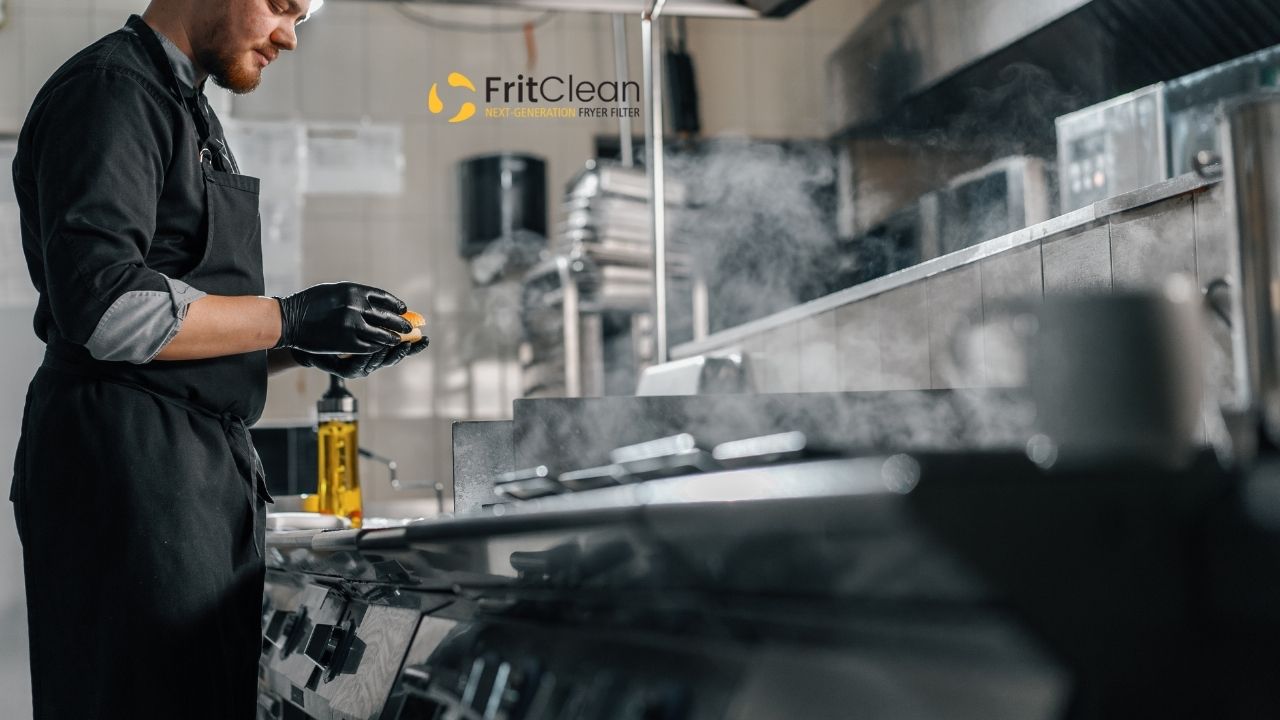The Role of Oil Cleaners in Reducing Waste and Costs
In professional kitchens, an oil cleaner is a vital tool for maintaining the quality and safety of cooking oil. Cooking oil, especially when used in deep fryers, can quickly become contaminated with food particles, carbon buildup, and other impurities. These contaminants degrade the oil, affecting both the flavor and safety of the food being prepared. An oil cleaner works to filter out these impurities, ensuring that the oil remains clean and effective for repeated use.
In high-volume kitchens, where large amounts of oil are used daily, maintaining clean oil is essential. Without proper filtration, the oil can break down quickly, resulting in poor food quality and the need for frequent oil replacements. This can be both costly and wasteful. An oil cleaner helps mitigate these issues by extending the lifespan of cooking oil, reducing waste, and ultimately saving the kitchen money. By removing contaminants from the oil, it also helps maintain consistency in cooking results, ensuring that food is always prepared to the highest standards.

Benefits of Using an Oil Cleaner
The benefits of using an oil cleaner extend beyond just prolonging the life of the oil. One of the most significant advantages is the improvement in food quality. Clean oil is crucial for achieving the desired texture, taste, and appearance of fried foods. Contaminated oil can cause food to absorb unwanted flavors, resulting in dishes that may taste greasy or stale. An oil cleaner helps keep the oil free from food particles, carbon, and other contaminants that can affect food quality, ensuring that each dish is crisp, flavorful, and consistent.
Another key benefit of using an oil cleaner is the positive impact on food safety. As oil breaks down, it can produce harmful byproducts, including acrylamide, a potentially harmful substance that forms when oil is heated to high temperatures. Acrylamide has been linked to health risks, including cancer. By keeping the oil clean with an oil cleaner, kitchens can prevent the formation of harmful byproducts, making the oil safer for both customers and staff. This is especially important in commercial kitchens where food safety is a top priority.
Furthermore, oil cleaners help maintain the efficiency of kitchen equipment. Deep fryers, grills, and other appliances that rely on oil can experience reduced performance and lifespan when the oil becomes contaminated. Impurities in the oil can clog equipment, leading to malfunction or increased wear and tear. By regularly filtering the oil with an oil cleaner, the equipment remains in good working condition, preventing costly repairs and ensuring smooth operation. Cleaner oil also helps the cooking equipment function more efficiently, improving the overall productivity of the kitchen.
Cost Savings and Efficiency with Oil Cleaners
An oil cleaner is a highly cost-effective solution for commercial kitchens that use large quantities of oil. Cooking oil is an expensive resource, and constantly replacing it can add significant costs to a kitchen’s operating budget. By using an oil cleaner to filter and reuse the oil, kitchens can reduce the frequency of oil replacements, thus saving money on oil purchases. This is particularly beneficial in fast-paced environments, such as restaurants and catering businesses, where oil is used in large volumes.

In addition to saving money on oil, oil cleaners also help reduce waste, making kitchens more environmentally friendly. By extending the life of cooking oil, oil cleaners reduce the amount of used oil that needs to be disposed of. This can be a significant environmental benefit, as used cooking oil can be difficult to dispose of properly. Some oil cleaning systems even allow for oil recycling, further reducing waste and supporting sustainable practices in the kitchen.
An oil cleaner also contributes to the overall efficiency of the kitchen. By keeping the oil clean and ensuring that it lasts longer, kitchen staff can focus on other tasks without the constant need to monitor oil quality or replace the oil frequently. This improves workflow, allowing for more consistent cooking results and better time management in busy kitchen environments. Additionally, by extending the life of oil and reducing the need for frequent oil changes, oil cleaners help lower maintenance costs for kitchen equipment, further boosting efficiency.
Long-Term Benefits of Oil Cleaners in Professional Kitchens
Over time, using an oil cleaner can significantly enhance the overall operation of a professional kitchen. Clean oil not only ensures better cooking results and food safety, but it also reduces maintenance costs and improves equipment longevity. The investment in an oil cleaner pays off in the long run by providing consistent, high-quality results while minimizing operational costs.
Moreover, an oil cleaner helps maintain a kitchen’s reputation for quality. Consistently clean, fresh-tasting food will encourage repeat customers, improve customer satisfaction, and boost the establishment’s overall image. In competitive industries such as hospitality and foodservice, the ability to consistently deliver excellent food quality can make a big difference in attracting and retaining customers.
An oil cleaner is an essential tool for any professional kitchen looking to maintain the quality, safety, and efficiency of their cooking operations. From extending the life of oil to improving food quality and saving money on oil replacements, the benefits are clear. By investing in an oil cleaning system, kitchens can ensure they are providing the best possible food while also operating in a cost-effective and environmentally responsible manner.
